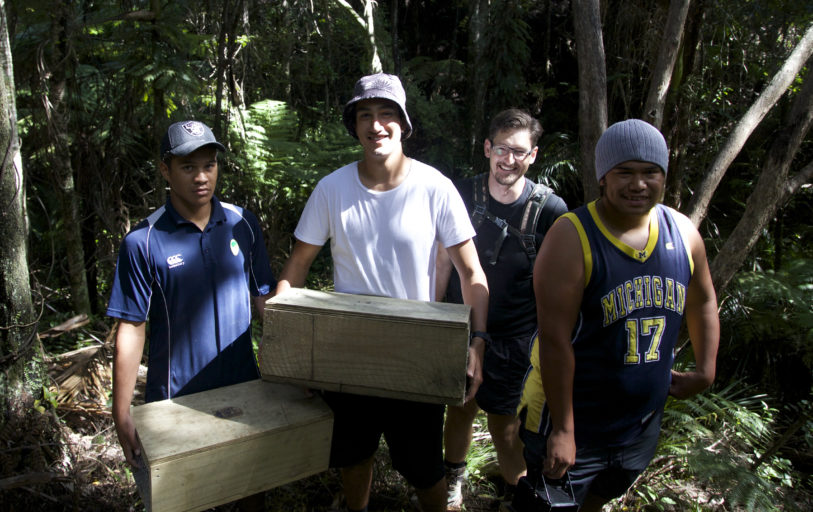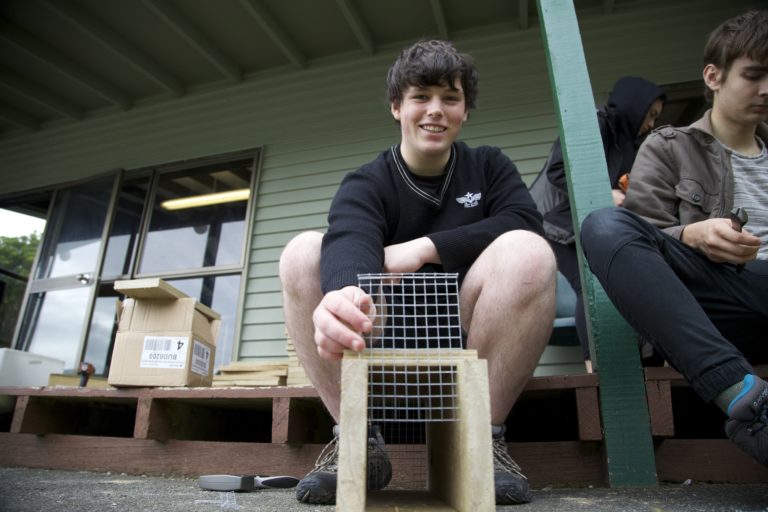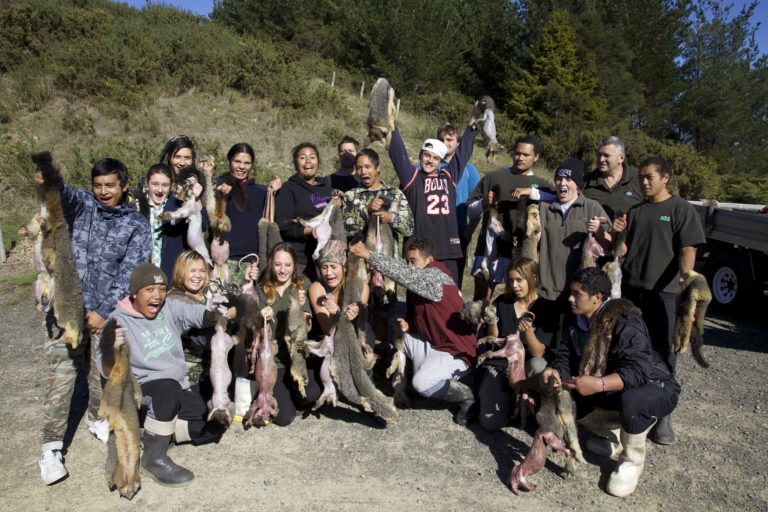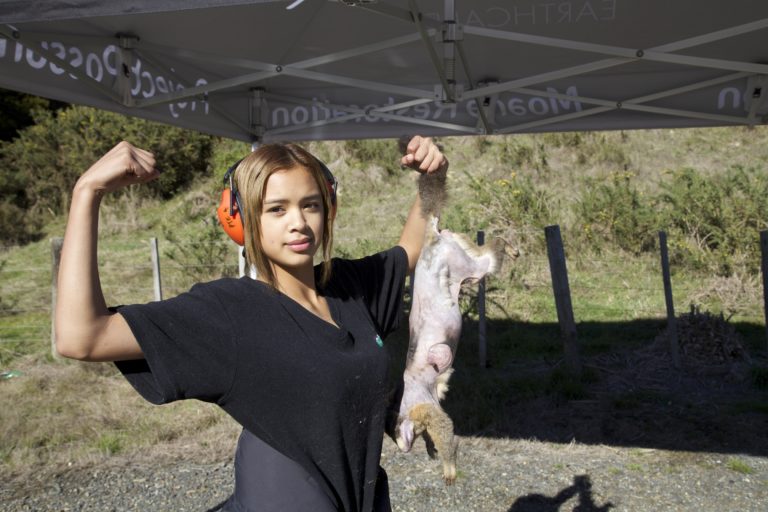Every three weeks, 2-3 senior students from most central Wellington high schools come together for an after-school workshop to help them hone the leadership skills they need to develop their own sustainable, environment-focussed enterprise or project. The workshops continue for the full school year, earning NCEA credits and are the latest initiative from sustainability and ecological training organisation Papa Taiao Earthcare.

Rene Davies has been with the organisation for about a year and coordinates the Wellington leadership programme.
“Wellington is the second region (after Northland) to offer a full-year course,” he explains. “The workshops look at skills like fundraising and marketing a sustainable enterprise or project. Then the students bring the projects back to their school and encourage other pupils and teachers, helping to develop a culture of environmental sustainability.”
Possible projects being developed by this year’s Wellington student leaders include a community garden, rat-proofing compost bins and a kaitiakitanga project that builds on the strong links Te Kura Kaupapa Maori O Nga Mokopuna students have to korora (little blue penguins). The students are considering night tours to see penguins or working to raise awareness of the dangers penguins face from dogs walking off-lead.
“The projects depend on the region and what people there want to do,” says Rene. “In Northland, students use the ocean a lot more – its more abundant compared to urban centres. Our enterprise course ties in with the Young Enterprise Scheme and students can achieve ‘Education for Sustainability’ and ‘Business Studies’ NCEA standards, as well as unit standards in subjects like trapping, fencing and pest plants. Students learn important team-work and business skills alongside the key concepts of sustainability.”

Marty Taylor established Papa Taiao Earthcare in 2014 after six years teaching and facilitating Education for Sustainability in secondary schools. He developed the latest leadership programme after being awarded an ‘Unlocking Curious Minds’ grant to develop a secondary schools predator control programme.
“Initially we worked in schools all day for one day a week,” he says, “but we found when we did that, the students became reliant on us. We wanted to develop a leadership programme where they were more independent. One of the key things for engaging students in a project is independence and leading it themselves.”
Papa Taiao is currently working with Predator Free 2050 and Unlocking Curious Minds in researching the impacts of the leadership programme.
“Our key findings are that students want and enjoy the autonomy of choosing the subject of their sustainable enterprise. They’re learning transferable skills in marketing and funding as well as skills relating to the actions they take (such as predator trapping). Not all of our projects are specifically predator-free,” he adds. “Of the 7 Wellington projects, 1-2 relate to becoming predator free, but all are about sustainability.”

Marty and his team at Papa Taiao are keen to extend their programme to other regions of New Zealand – both through running short courses offering NCEA credits and also working with schools in a region to develop a leadership programme focussed on their local sustainability issues and opportunities.
“The key to scaling it across New Zealand is the need to enable young people to drive actions they find useful, like trapping and rat-free compost bins, alongside the significant income opportunities they provide ” says Marty. “We’re also trying to connect secondary schools in a predator-free network and support them with short courses that offer 14 credits at level 2 and 18 credits at level 3.”
Rolling out the leadership course to other regions is a bit more involved than running a short course in a single school.
“To run a short course, such as a trapping and/or a pest plant course, we usually need several schools in the area to be involved with a total of 15-25 pupils. We have the capacity to run short courses across any region in New Zealand. If schools would like the opportunity to get more involved and can source the appropriate funding, we’ll definitely bring a full year enterprise course to their region,” Marty says.

Rene is closely involved in setting up courses in the Wellington region, so knows the organisation and coordination that is involved.
“My work involves developing the programme and relationship building – and trying to fit in with school timetables,” he explains. “We’re also offering a few different courses this year, as well as the flagship enterprise course. One course we’re running in a Porirua school will involve 2 nights/3 days of workshops looking at Mana Island ecology and restoration, linked in with a short course on trapping where students learn why trapping is important and learn the practical skills, then they’ll be given traps for themselves. They’ll also learn about Mātauranga Māori, incorporating sustainability, taking part in a marae pōwhiri, learn their pepeha and other aspects of Tikanga Māori.”
To find out more about courses offered by Papa Taiao Earthcare, what’s involved in offering a course at your school and how courses relate to NCEA credits, check out the Papa Taiao website.

